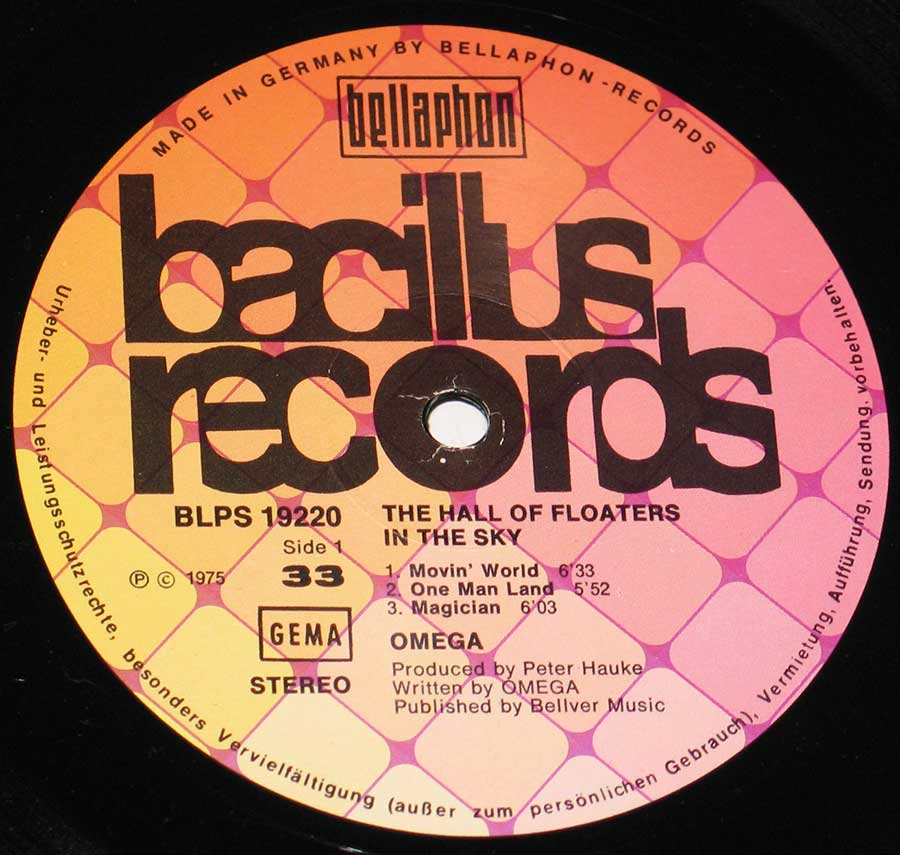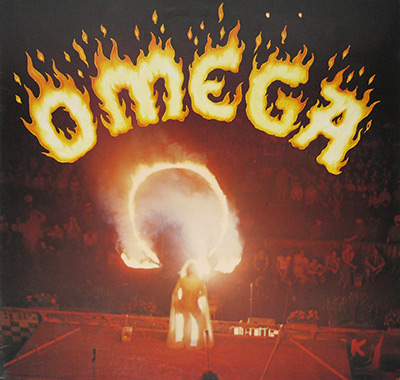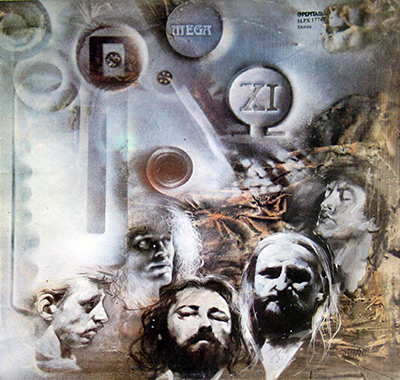Peter Hauke, Peter Hauke is a German producer and sound engineer, and in my book he flies the mixing desk like a cockpit: calm hands, sharp ears, zero mercy for mud. To my ears, his early-1970s run with Nektar (1971-1974, including "Remember the Future") nailed that widescreen space-rock glide, then mid-1970s work with Omega pushed prog into colder, grander atmospheres. Late-1970s, he locked in Supermax's groove-and-punch, and by the late 1970s into mid-1980s Hotline Studios in Frankfurt became his home base, producing Tony Carey's Planet P material with a tight, radio-ready snap.
Omega - Hall of Floaters in the Sky 12" Vinyl LP Album
- Bellaphon BACILLUS Records BLPS 19220
Released in 1975, Omega's "The Hall of Floaters in the Sky" is a pivotal Hungarian rock album showcasing the band's progressive and psychedelic sound. Produced by Peter Hauke at Pannónia Filmstúdió, the album features thought-provoking lyrics veiled in metaphor and symbolism, addressing themes of individuality and freedom. The band, composed of János Kóbor, György Molnár, László Benkő, Tamás Mihály, and Ferenc Debreceni, navigated political constraints while creating a unique sound that resonated with audiences and solidified their place in Hungarian rock history.










